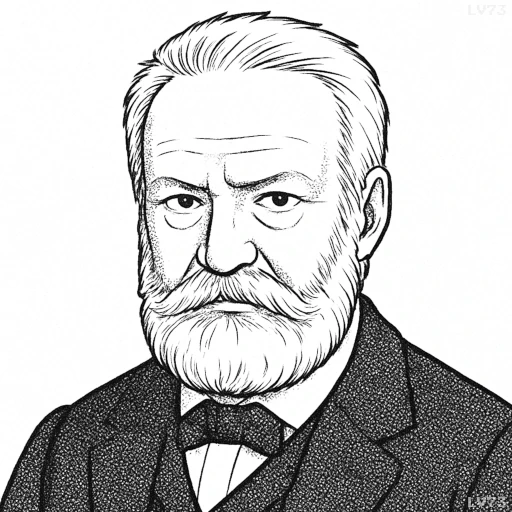“Smallness in a great man seems smaller by its disproportion with all the rest.”

- February 26, 1802 – May 22, 1885
- Born in France
- Author, poet, playwright
table of contents
Quote
“Smallness in a great man seems smaller by its disproportion with all the rest.”
Explanation
In this quote, Victor Hugo suggests that when a great man—someone of significant importance, power, or achievement—exhibits even the smallest flaws or imperfections, these flaws appear even more prominent due to their contrast with his overall greatness. The “smallness” or weaknesses of such a person stand out because they seem so out of place compared to the immensity of their talents, virtues, or accomplishments. This imbalance makes the flaws seem even more disproportionate and noticeable. It reflects the human tendency to magnify imperfections in those we see as exceptional or idealized, highlighting how greatness brings a higher level of scrutiny.
Hugo’s words speak to the expectations and pressures placed on those who are seen as extraordinary, and how even minor flaws can feel like major contradictions when set against their achievements. The quote also touches on the nature of greatness, where perfection is often expected, but humanity and imperfection remain inevitable.
In modern terms, this quote resonates with how we view public figures, leaders, or even ourselves when we strive for excellence. The contrast between a person’s flaws and their greatness often leads to heightened criticism, emphasizing how difficult it is for anyone, no matter how accomplished, to escape the magnification of their imperfections. It reminds us that no one is truly perfect, and that even the greatest individuals are subject to the same human weaknesses as the rest of us.
Would you like to share your impressions or related stories about this quote in the comments section?



